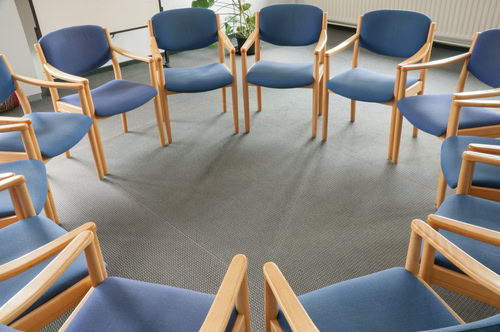Defining Each Phase Of Treatment Available To You: Outpatient- Custom Services

Previously, we generally defined phases of treatment including detox, residential inpatient, partial hospitalization, and intensive outpatient programming. After intensive outpatient, there are lower levels of care which can either supplement higher levels of care or act as standalone resources for professionals seeking recovery.
Outpatient
Outpatient programming is sometimes called “after care”, though the term “aftercare” can also refer to a general plan of providing treatment after a formal program. Typically, an outpatient group meets only once or twice per week for a minimal amount of hours. Individuals engage in group therapy for processing and support. Individuals meet with their personal therapist, doctors, and other providers on their own time outside of group. At this level, drug testing is still available. For professionals who have an addiction which has not spun entirely out of control, a lower level of maintenance care like outpatient, in addition to concierge style services like monitoring, case management, and a therapeutic companion, can create a comprehensive treatment program.
Transitional Living
Transitional living is a sober living environment in which individuals are still engaging in treatment programs. Professionals who need an extended period of time in a sober, structured environment benefit from a gradual process of reintegration to responsibility in their lives before returning to their professional field. A transitional living home will require attendance to a lower level of care like partial hospitalization, intensive outpatient, or outpatient, as well as recovery support meetings, doctors, and a personal therapist. Drug tests will be random as well as scheduled. Individuals will have a curfew, but will largely provide for themselves. Some transitional living programs may provide life skills education including a chef, cooking classes, budgeting, and more.
Sober Living
Sober living homes are defined by their zero tolerance policy on relapse and drug use. Individuals in a sober living home have typically completed their programs of treatment, or may still be in lower levels of care. Often, they are starting their transition into independence by returning to their career fields, entering training, or working on healing their family. Sober living homes have curfews, chores, and meeting attendance requirements as well as both random and scheduled drug tests.
Concierge Services
Professionals are anything but typical. To maximize their experience with treatment and recovery, professionals need concierge services which go beyond the typical. O’Connor Professional Group offers concierge style services to meet the unique needs of your life in order to support treatment and recovery in the best possible care plan. From consultations and case management to monitoring programs, executive coaching, family services, and therapeutic companions, we can help make your recovery 100% focused on your needs.
Let the O’Connor Professional Group take the guesswork out of putting a treatment plan together. Our combined personal and professional experience empowers us to empower you with a private consultation and customized plan of action for getting the help you need. Call us today for information: 617 910-3940

